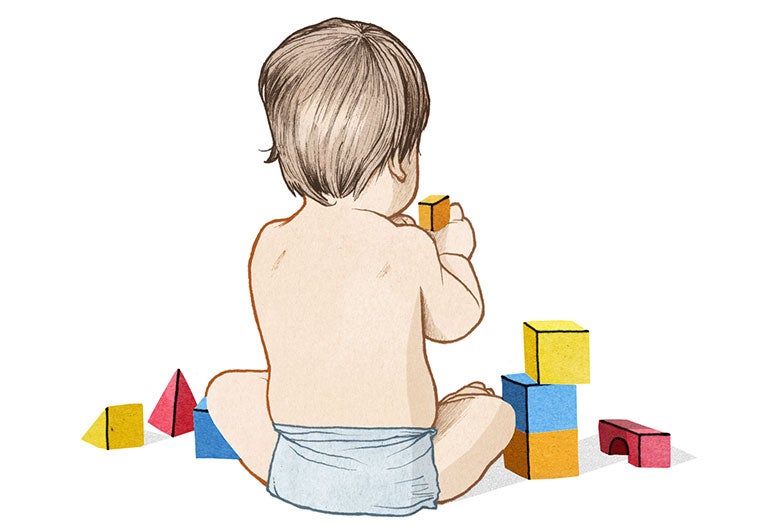Unconventional Wisdom
Despina Colette Nicolaou in her own words

A licensed clinical psychologist, D. Colette Nicolaou’s academic pursuits are as varied as her teaching style. She earned her undergraduate degree from the University of Pennsylvania in biology and anthropology, a master’s degree in physiology from Georgetown and a Ph.D. in clinical psychology from Drexel University. Nicolaou then completed a postdoctoral fellowship at Children’s Hospital Los Angeles. She moved to Houston intending to be a clinician. While awaiting her Texas license to practice, however, she took a walk through campus and fell in love. She has been a psychological sciences lecturer at Rice for the past eight years and was awarded a George R. Brown Award for Superior Teaching in 2018 as well as the 2019 Sarah A. Burnett Teaching Prize in the Social Sciences.
Top Topics
I teach a broad range of topics, including the brain, memory, consciousness, stress and health, interpersonal relationships, personality, motivation, development and many more. I like to show original footage of things like Pavlov’s dogs. I think it’s so cool that we have videos like that. I want to give students the history of the field and I want them to critically evaluate what the current research says. I also like to recreate original experiments in class demonstrations. Sometimes it’s a big hit and sometimes it’s a total fail. And that’s OK, because at least we have a good laugh together. It’s a great way to describe studies, note their limitations and experience how challenging research can be.
Making Connections
I’ve worked a lot with children and families; that’s how I transitioned into teaching PSYC 321: Developmental Psychology, and I’ve loved it. My teaching style is really about connections — connections between the students and me, the students and the material, and the students themselves. When you make those connections in a classroom, it’s magical. For really deep learning to occur, there must be meaningful change, and I believe this often comes from an emotional connection.
Building Trust
One of the first things I try to do is develop trust in the classroom. Once they trust me, they’ll listen, begin to trust each other and engage in discussion. Then they’ll fall in love with the material. I reveal a lot about my own life. I talk about my developmental journey, my family and my patients to highlight the application of the theories and research we are discussing. I share those experiences to model trust, and then they share their experiences as well. Now they’ve made a personal connection!
Weakness to Strength
Each student is different. You have to discover their strengths and nurture them. But don’t be afraid to identify their weaknesses. We can’t be scared to say “try again.” Sometimes, if a student isn’t doing well, we’ll meet and I’ll try to figure out why. Are they overwhelmed with their course load? Are they having personal difficulties that prevent them from focusing? Were they with their sick roommate in the emergency room all night? Or do they not yet have the study skills to master the material? Regardless, it is my job to guide them through any obstacles getting in the way of success in my classroom.

Teaching With Toddlers
Doing is learning, so my teaching includes a lot of experiential activities. My favorite class is when I bring my children in and allow students to work with them. After exploring several developmental theories, students create ways to test them among children of different ages. They’ve examined topics such as infant reflexes, Piaget’s limits of conservation, motor development, theory of mind, impulse control and emergence of gender identity. For example, students hold up a girl doll and a boy doll and ask, “Who goes to work? Who makes more money? Who is a scientist?” It’s remarkable to see how my kids — now ages 3, 5 and 7 — respond differently based on their developmental framework. The students are incredibly creative in their approaches, and it’s always a fun day — even when the kids don’t cooperate. Temper tantrums can be part of it! That’s what it’s like doing research with children. It’s hard. Honestly, it’s a little bit embarrassing, but then it opens up a discussion about emotional regulation, brain development and parenting strategies.
Shared Respect
At the very end of PSYC 101, we cover psychological disorders. People are much more willing to share once we’ve developed a relationship as a class. For example, when discussing anxiety disorders, I might say, “Who’s had a panic attack?” On day one, no one would have told me. But by the end of the semester, they’re talking about their panic attacks, about being bullied, about depression, about alcoholism in their families, about trauma. They’re talking about it with 100 people staring at them. It takes a semester to get there, but when that happens, it’s amazing. When students hear their classmates share their struggles, it normalizes mental health and gives them hope. It’s a remarkable feeling.
A Family Affair
We are three generations at Rice: my dad, me and my three kids, who have attended the Rice preschool. After coming to Rice in 2011, I had a baby. And my parents [dad K.C. Nicolaou is the Harry C. and Olga K. Wiess Professor of Chemistry at Rice] were like, “What are we doing in California when our first grandchild has been born?” So my dad got a wonderful Cancer Prevention and Research Institute of Texas grant to do his research at Rice, and we just celebrated his 800th publication!
Growing up, students were a part of our lives. My mom would cook for 100 people: students and their families. There would be Greek music playing. She’d be holding postdocs and Ph.D. students in a line, twirling a handkerchief, dancing around the kitchen table, feeding everybody. It was a great time. And the next morning, everybody was back in the lab, back to work, bright and early. That’s how we grew up. Mentorship, teaching, hard work and family all went together. You assume so many roles when you teach. I love learning from my students. As they grow, I grow. It is a remarkable honor to see them flourish and twirl their own handkerchiefs!
Brain Reinforcement
I try to embed several growth-from-failure activities in my classes. In Developmental Psychology, I have students choose any topic that they’re curious about to make an inquiry-based pamphlet for the layperson, like for a medical clinic or at the YMCA. They give me this beautiful research paper squeezed into a single trifold pamphlet, but it’s a fail because they use words like metacognition and implicit memories. Nobody knows what that means, so they don’t get a great grade. But it’s not worth a lot of points.
I give them feedback, they do peer reviews, and then they revise it. They come back with something much more appropriate. But in that fail, they’ve now learned everything there is to know about the topic they’ve chosen. They’ve done all the research; they know it. Through this process, they’ve had to distill out the most important concepts and learn how to communicate them to a nonscientific audience. They’ve created something really beautiful that isn’t a research paper. It is engaging and truly useful to anybody in the community who would pick it up.
Learning and Recall
The other thing I really try to do is insert “recall” throughout the semester. We start off in PSYC 101 describing the structure of the brain. Most people think, “Oh, why do I need to learn about the parts of the brain and neurotransmitters?” It’s not what they expect this class to be about. But then, when we talk about treatment for depression and how medication works, we go back to the structure of the brain — we go back to the neurotransmitters. When we talk about PTSD, we go back to the part of the brain where memory is stored and how that is different in patients with PTSD. We make these links throughout, and continually reinforce past learning.
Connecting All the Dots
My students teach me tenfold what I teach them. Every semester, I will get questions that I don’t know the answer to. It is a little bit embarrassing when I have to say, “That’s a great question! I do not know the answer to it.” I used to view it as a personal failure. Then I started viewing it more as a professional win, because when they start doing critical thinking and asking such good research questions, that means they’ve got the basics and they’re thinking on a much deeper level. What I usually do is throw the question back to the class, and people will come up with great ideas. We explore the question together and they impress me with their collective knowledge.
— Jenny West Rozelle
